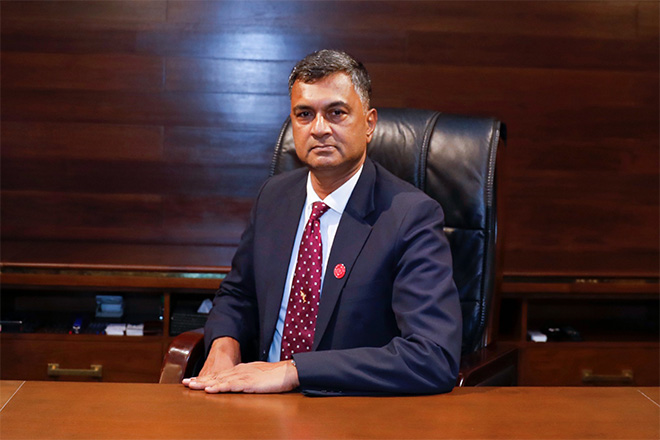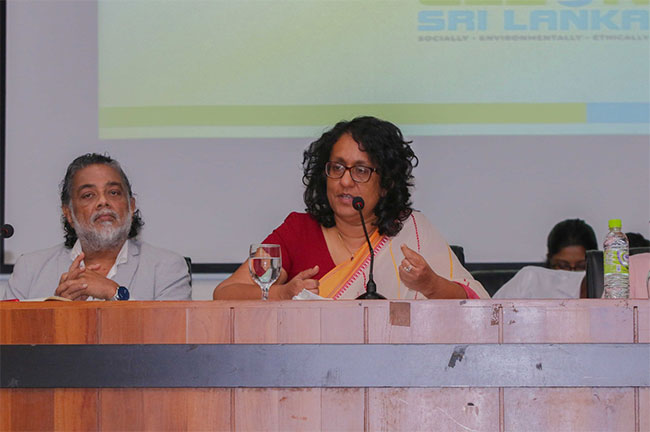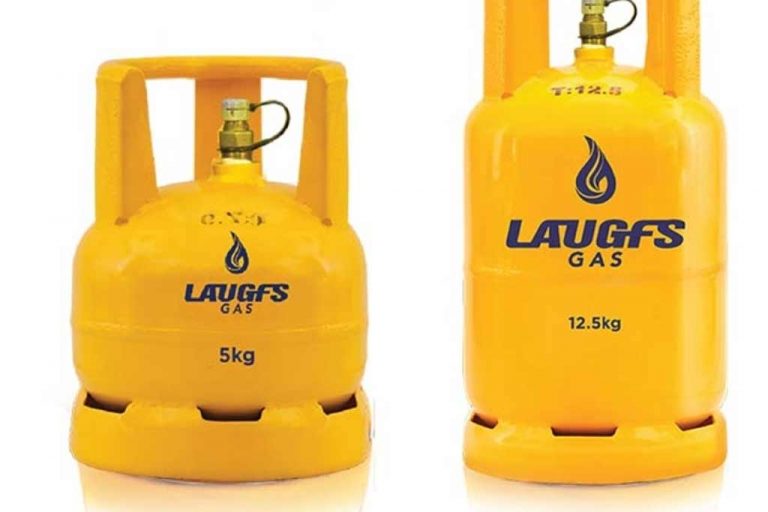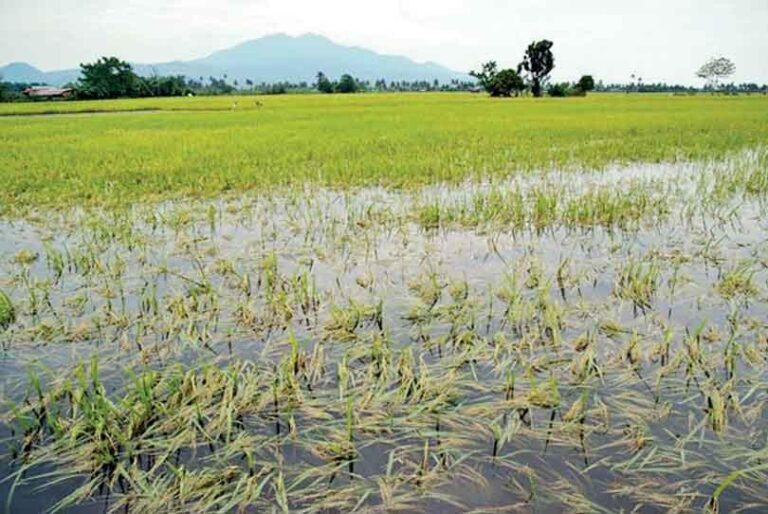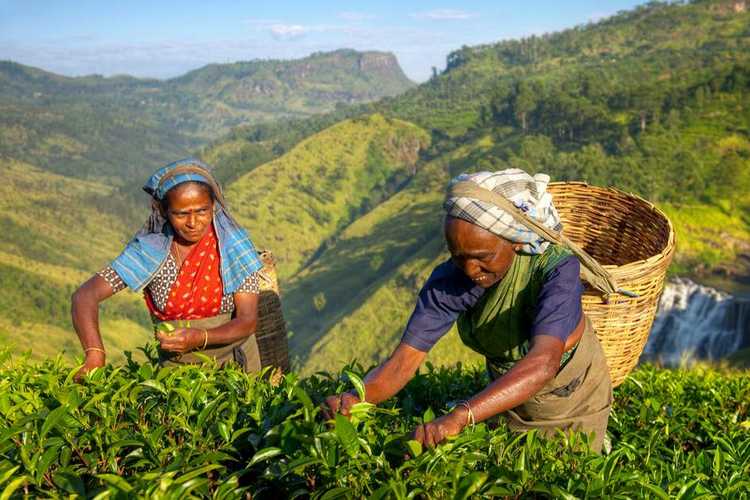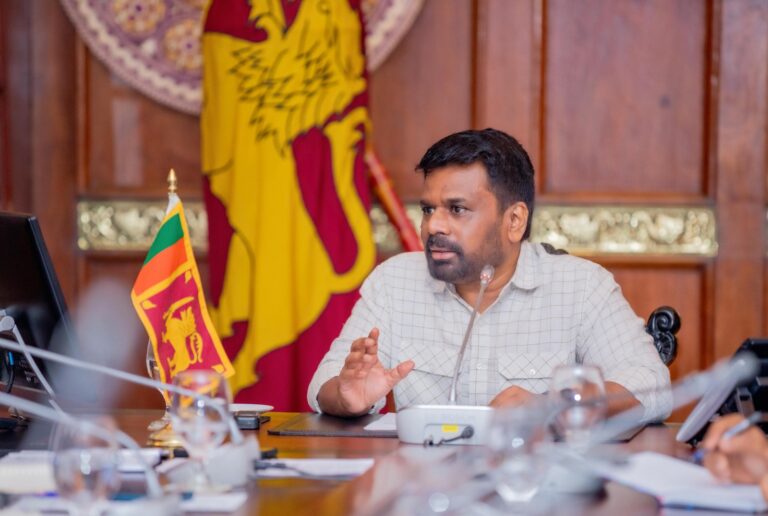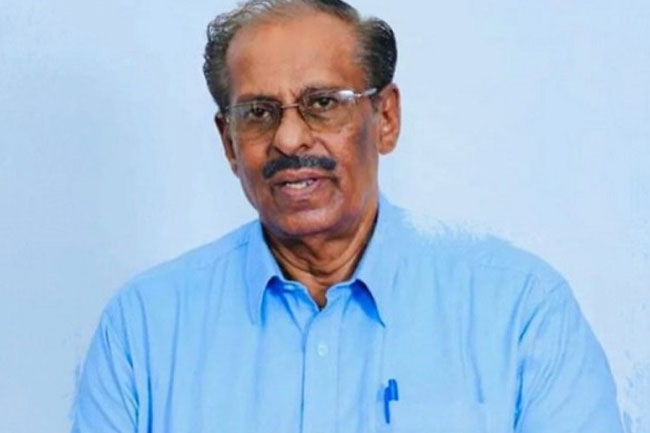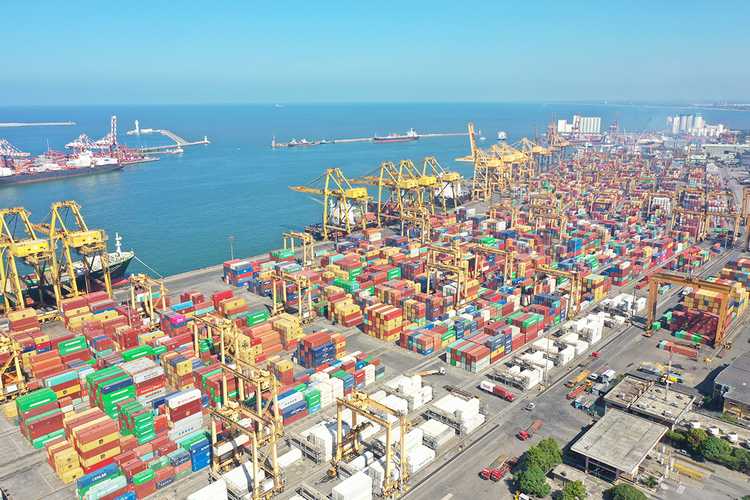January 30, Colombo (LNW): In the face of strong protests from India over a recent incident involving the Sri Lankan Navy opening fire, Defence Secretary Air Vice Marshal (Rtd) Sampath Thuyacontha has defended the actions of the Navy, stating that Sri Lanka will continue to search vessels entering its waters in line with established legal protocols aimed at preventing illegal activities.
India raised a formal protest on Tuesday after the Sri Lankan Navy fired January 28 whilst detaining 13 Indian fishermen near Delft Island.
The Indian Ministry of External Affairs summoned Sri Lanka’s acting High Commissioner to lodge a complaint, asserting that the actions of the Sri Lankan Navy were unprovoked.
India also indicated that it had raised the issue with the Sri Lankan Ministry of Foreign Affairs.
In response, Defence Secretary Thuyacontha explained that the Sri Lankan Navy operates around the clock to curb illegal activities in its waters, including human trafficking, illegal fishing, and the smuggling of drugs and weapons.
He maintained that such operations are carried out within legal boundaries, and he reiterated that the Navy would continue to carry out its duties in enforcing maritime security.
Thuyacontha made it clear that the Navy’s actions were necessary and legitimate, highlighting that the search of vessels entering Sri Lankan waters is mandatory, regardless of their country of origin.
“We are committed to ensuring that our waters are protected from illegal activities, and this will continue through legal, non-confrontational methods,” he said. “If foreign vessels cooperate, there will be no issues. But if resistance is met, the situation could escalate.“
The Defence Secretary further pointed out that Sri Lanka’s recent efforts had yielded successful operations, including the seizure of significant drug shipments.
In addition to this statement, the Sri Lanka Navy’s Commander provided further details on the incident involving the two Indian fishermen who were injured during the apprehension.
He clarified that the injuries were caused by an accidental discharge of a firearm while the Navy was attempting to board a fishing vessel involved in illegal fishing activities near Kankesanthurai.
The operation had started on January 27 to disperse a group of Indian fishing boats operating illegally in Sri Lankan waters near Valvettithurai, Jaffna.
The Commander explained that the crew of the Indian fishing boat had resisted the Navy’s boarding attempt and had attempted to assault personnel, even trying to seize a firearm.
During the scuffle, a shot was discharged accidentally, resulting in minor injuries to two of the fishermen. The Navy swiftly administered first aid and transported the injured men to Jaffna Teaching Hospital for further treatment.
Despite the controversy, the Navy Commander reiterated that the Sri Lankan Navy would continue its operations to safeguard the country’s waters, assuring that these actions would be conducted professionally and in compliance with the law.


